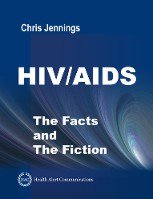
THE MONKEYS ARE INNOCENT!!! Chris Jennings describes how laboratory contamination started the theory that HIV came from African monkeys. It all started at the Harvard School of Public Health . . .
Read a more detailed description of these historical events at the blog post: How Laboratory Contamination Spawned the Theory that HIV came from African Monkeys (Video).
Video Transcript:
The theory that HIV came from African monkeys was all started by laboratory contamination. The contamination occurred at the Harvard School of Public Health. Researchers had brought over blood samples from African Green monkeys and isolated from these blood samples what they called an “AIDS-like virus” [ref].
This discovery was widely accepted and soon, everyone believed that HIV came from Africa, and that HIV particularly came from African Green monkeys, or rather, the ancestors of HIV came from African Green monkeys.
The truth came out in 1988. The virus that the people at the Harvard School of Public Health had discovered did not come from African Green Monkeys. This virus did not come from Africa. Rather, this “AIDS-like virus” actually came from Rhesus macaque monkeys living in Southborough, Massachusetts. Rhesus macaques are originally from India; but probably these Rhesus macaques had been living for generations at research centers in the United States, so could be called – maybe – “American monkeys.”
What happened is, in May 1985, researchers had isolated this virus from 4 sick Rhesus macaque monkeys [ref]. They had given samples to the researchers at the Harvard School of Public Health. When the researchers at the Harvard School of Public Health brought over blood samples from Africa, they became contaminated with this virus from Southborough, Massachusetts. And the discovery of the “AIDS-like virus” was actually the discovery of the contaminating virus that came from Southborough, Massachusetts.
The February 18, 1988 issue of Nature journal had three articles that attested to these facts. First, it had an editorial describing the story I just told you [ref]. Second, it had the reports of the genetic comparison that proved that the “AIDS-like virus” found in the blood samples of African Green monkeys was actually the contaminating virus that came originally from Southborough, Massachusetts [ref]. And, third, the lead authors of the discovery of the “AIDS-like virus” at the Harvard School of Public Health, Phyllis Kanki, wrote a letter acknowledging the contamination [ref].
Unfortunately, six months later in October 1988, these two researchers, Phyllis Kanki and Max Essex, wrote an article for Scientific American. The article was called “The Origins of the AIDS Virus,” and it featured a full-page color photograph of the African Green monkey [ref].
Although these events spawned and perpetuated the idea that HIV came from African Green monkeys, the current belief is that HIV came from chimpanzees. And that’s a story for another time. It is not so much bad science as; rather, whimsical science that was rapidly accepted because the theory that HIV came from Africa is very comforting for many people.
Related Blogs:
- How Laboratory Contamination Spawned the Theory that HIV came from African Monkeys (Text)
- The Implausibility of HIV/AIDS Statistics in South Africa (Video)
- The First AIDS Patients in Africa were Two Gay White Men in South Africa
- The Implications of Bad HIV/AIDS Science in Africa
- HIV / AIDS The Facts And The Fiction
- HIV / AIDS in South Africa: The Facts and The Fiction
Bibliography
Kanki, P.J., Alroy, J., and Essex, M. (1985) Isolation of T-Lymphotropic Retrovirus Related to Htlv-Iii/Lav from Wild-Caught African Green Monkeys. Science 230: 951-954. [PMID: 2997923]
Daniel, M.D., Letvin, N.L., King, N.W., Kannagi, M., Sehgal, P.K., Hunt, R.D. et al. (1985) Isolation of T-Cell Tropic Htlv-Iii-Like Retrovirus from Macaques. Science 228: 1201-1204. [PMID: 3159089]
Mulder, C. (1988) Virology. A Case of Mistaken Non-Identity. Nature 331: 562-563. [PMID: 2829030]
Kestler, H.W., 3rd, Li, Y., Naidu, Y.M., Butler, C.V., Ochs, M.F., Jaenel, G. et al. (1988) Comparison of Simian Immunodeficiency Virus Isolates. Nature 331: 619-622. [PMID: 2893293]
Essex, M. and Kanki, P. (1988) Reply To “Comparison of Simian Immunodefiency Virus Isolates”. Nature 331: 621-622. [Citation at Nature]
Essex, M. and Kanki, P.J. (1988) The Origins of the Aids Virus. Sci Am 259: 64-71. [PMID: 2907683 ]






Leave a Reply